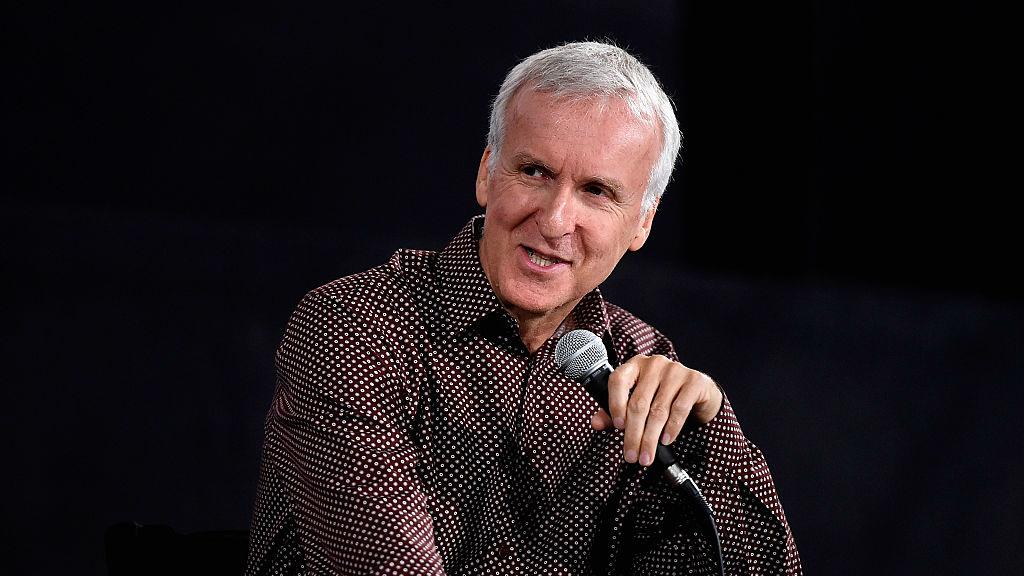Oscars 2017: James Cameron says awards are 'biased' against blockbusters
'I had made a decision way before Titanic that I wasn’t going to serve two masters: I was going to put my visual cinema first'

Your support helps us to tell the story
From reproductive rights to climate change to Big Tech, The Independent is on the ground when the story is developing. Whether it's investigating the financials of Elon Musk's pro-Trump PAC or producing our latest documentary, 'The A Word', which shines a light on the American women fighting for reproductive rights, we know how important it is to parse out the facts from the messaging.
At such a critical moment in US history, we need reporters on the ground. Your donation allows us to keep sending journalists to speak to both sides of the story.
The Independent is trusted by Americans across the entire political spectrum. And unlike many other quality news outlets, we choose not to lock Americans out of our reporting and analysis with paywalls. We believe quality journalism should be available to everyone, paid for by those who can afford it.
Your support makes all the difference.James Cameron isn't pleased with the powers that be at the Academy Awards.
Speaking to The Daily Beast, Cameron responded to a question about why the ceremony hasn't bested its ratings records from 1998, the year Titanic swept the board; with Cameron offering the explanation that the Oscars show a particular bias towards popular, blockbuster films.
"There have been a few times throughout the history of the Oscars where a wildly popular film was well-received," Cameron stated. "But your typical year the Academy takes the position of: 'It is our patrician duty to tell the great unwashed what they should be watching,' and they don’t reward the films that people really want to see—that they’re paying money to go see—and they’re telling them, 'Yeah, you think you like that, but what you should be liking is this.'"
"And as long as the Academy sees that as their duty, don’t expect high ratings," he continued. "Expect a good show, and do that duty, but don’t whine about your ratings. Titanic was a very unusual case. I’m not saying it’s a better film than films before or after, or it was necessarily a better year in general, but it was a film that made a boatload of money and got a lot of nominations. The next time we see that, we’ll see ratings go up. It’s that simple."
"There’s definitely a bias," he further expanded. "The Academy still has a majority of its members that are actors. Look, I love actors, but that’s how they think—they’re generally sceptical of technology. So when they see a film that’s too dependent on visual effects, they say, oh, that’s not an acting movie."
"Well, Titanic was a visual effects movie in sheep’s clothing, you know? Yes, it had visual effects, but it was about the people and about the story. The visual effects were eclipsed by that. But if you do a movie like Avatar, the effects are right out front, and even though I felt the acting was just as good, and the story we were telling was just as good, they’re not going to reward it the same way."
"That’s just a fact of life. I had made a decision way before Titanic that I wasn’t going to serve two masters: I was going to put my visual cinema first. Even though I’ve spent an awful lot of time on scripts and on performance, I still love doing big, visual cinema. I doubt I’ll even get nominated again, but if I did, I’m probably going to lose to a Woody Allen movie. That’s the nature of it. So you don’t try to serve two masters."
Does Cameron's theory actually hold up? In a casual glance, perhaps; there have been numerous outcries over the years when particular films have failed to garner Oscar nominations, specifically Christopher Nolan's The Dark Knight and Inception.
It's true that no superhero film has ever earned a Best Picture nomination, but it's hard to apply a blanket bias to the whole affair, especially if you attempt to put any truth to Cameron's claim that visually-driven films aren't favoured with the Academy.
There's the small question of Lord of the Rings: Return of the King's sweep of the 2004 Oscars, Gravity's seven wins in 2014, or even last year's strong showing from George Miller's Mad Max: Fury Road. Sure, the Academy Awards are still essentially a popularity contest, but it's strange to demand they reflect box office numbers.
The 89th Academy Awards take place 26 February.
Join our commenting forum
Join thought-provoking conversations, follow other Independent readers and see their replies
Comments